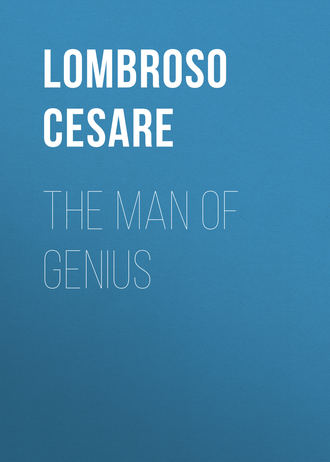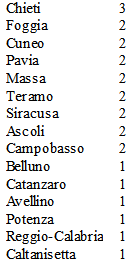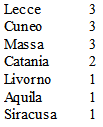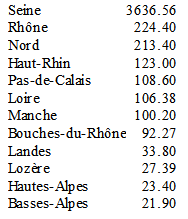 полная версия
полная версияThe Man of Genius
174
Dialogues, i.
175
Dialogues, ii.
176
Bugeault, Étude sur l’état mental de Rousseau, 1876, p. 123.
177
Revue Philosophique, 1883.
178
Schurz, Lenaus Werke, vol. i. p. 275.
179
Kecskemetky, S. Széchénys staatsmänn. Laufbahn, &c., Pesth, 1866.
180
Costanzo, Follia anomale, Palermo, 1876.
181
Gwinner, Schopenhauers Leben, 1878; Ribot, La Philosophie de Schopenhauer, 1885; Carl von Sedlitz, Schopenhauer vom Medizinischen Standpunkt, Dorpat, 1872.
182
Gwinner, p. 26.
183
Memorabilien, ii. p. 332.
184
Parerga, ii. p. 38.
185
Pensiero e Meteore in Biblioteca Scientifica Internazionale, Milan, 1878; Azione degli Astri e delle Meteore sulla mente Umana, Milan, 1871.
186
Quetelet, Physique Sociale, Book iv. ch. i.
187
Mantegazza, op. cit.
188
E. Neville, Maine de Biran, Sa Vie, &c., p. 129, 1854.
189
Revue Bleue, 1888, No. 9.
190
Viaggio in Sicilia, vol. vii.
191
Epistolario, 1878.
192
Nature, Nov. 1883.
193
Réveillé-Parise, Physiologie des hommes livrés aux travaux de l’esprit, pp. 352-355.
194
Giussani, Vita, &c., p. 188.
195
Epistolario, p. 395.
196
Lebin, Sur l’époque de la composition de la Vita Nuova, p. 28.
197
Life and Letters, vol. i. p. 51.
198
Stopfer, Vie de Sterne, Paris, 1870.
199
Goethe, Aus Meinem Leben.
200
Zanolini, Rossini, 1876.
201
Clément, Les Musiciens Célèbres, Paris, 1878.
202
Alborghetti, Vita di Donizetti, 1876.
203
D’Este, Memorie su Canova, 1864.
204
Gotti, Vita di Michelangelo, Florence, 1873.
205
Milanesi, Lettere di Michelangelo, Florence, 1875.
206
Amoretti, Memorie storiche sulla vita e gli studi di Leonardo da Vinci, Milan, 1874.
207
W. Irving, Columbus, vol. i. p. 819; Roselly de Lorque, Vie de Colomb., 1857.
208
According to Secchi (Soleil, 1875) Scheiner preceded Galileo, and was himself preceded by Fabricio, though the discovery of this last was not known until a later date.
209
Galilei, Opere, vol. i. p. 69.
210
Arago, Œuvres, 1851.
211
Hœfer, op. cit.
212
Herschel, Outlines of Astronomy, 1874.
213
Arago, Notices Biographiques, 1855.
214
Atti, Della Vita di Malpighi, 1774.
215
Hœfer, Histoire de la Chimie, 1869.
216
Briefe an Schiller.
217
Gherardi, Rapporti sui Manoscritti di Galvani, 1839.
218
Schiaparelli, Intorno Alcune Lettere inedite di Lagrange, 1877.
219
Humboldt, Correspondance, Paris, 1868.
220
Letters from Humboldt to Varnhagen.
221
Arago, Notices Biographiques, 1855.
222
Whewell, History of the Inductive Sciences, 1857.
223
N. Bianchi, Vita di Matteucci, Florence, 1874.
224
The catalogue of small planets has been drawn from the Annuaire du Bureau des Longitudes (Paris, 1877-8). The list of comets has been taken from Carl’s Repertorium der Cometen Astronomie (Munich, 1864). It begins with the comet discovered by Hevelius in 1672, and ends with that found by Donati on the 23rd of July, 1864; Gambart’s comets, already separately enumerated, have been excluded. To keep the conditions analogous to those of the small planets, all the comets to which Carl does not assign a discoverer, have been omitted; this includes such as were expected from previous calculations or perceived with the naked eye by the general population. All those that were discovered simultaneously by several observers, unknown to one another, have, however, been included, for it is not a question of priority, but of the psychological moment of the discovery. Three comets discovered in the months of February, May, and December, were found in the southern hemisphere; they must, therefore, with reference to season be registered as for August, November, and June, and have so been counted.
225
Atti, Della Vita ed opere di Malpighi, Bologna, 1774.
226
History of Civilisation, i.
227
Études sur la Selection, &c., Paris, 1881.
228
Biographie Universelle des Musiciens, Paris, 1868-80.
229
Histoire des Musiciens Célèbres, Paris, 1878.
230
Dizionario dei Pittori, 1858.
231


232
La Scuola Musicale di Napoli, 1883.
233
See my Pensiero e Meteore, 1872, and Archivio di Psichiatria, 1880, p. 157.
234


235
The difference with reference to painters is caused by the numerical weakness of Udine and the superiority of Catania and Palermo.
236
Il Censimento dei Poeti Veronesi, Dec. 31, 1881.
237
American Nervousness.
238
See Sternberg, Archivio di Psichiatria, vol. x. 1889, p. 389.
239
Statura degli Italiani, 1874; Della Influenza orografica nella Statura, 1878.
240
Étude sur la Taille.
241
Démographie de la France, 1878.
242
Inhabitants to the square kilomètre: —

243
“Les Antiquités Égyptiennes,” in Revue des Deux Mondes, April, 1865.
244
Archivio di Psichiatria, vol. viii. fasc. 3.
245
Libri, Histoire des Mathématiques, vol. iii.
246
De Candolle, Histoire des Sciences, 1873.
247
Joseph Jacobs, “The Comparative Distribution of Jewish Ability,” Journal of Anthropological Institute of Great Britain, 1886, pp. 351-379.
248
Gli Israeliti di Europa, 1872.
249
Archivio di Statistica, Rome, 1880.
250
Die Verbreit, der Blind, &c., 1872.
251
Renan in his Souvenirs de Jeunesse remarks that since Germany has given herself up to militarism she would have no men of genius, if it were not for the Jews, to whom she should be at least grateful. But he forgets Haeckel, Virchow, and Wagner.
252
One case is known in which parents zealously sought to educate and favour by every means poetic genius in their son. The outcome of their fervent efforts was Chapelain, the too famous singer of the Pucelle.
253
Hereditary Genius, 1868.
254
L’Hérédité Psychologique, 1878.
255
Biographie Universelle des Musiciens.
256
Ribot in his L’Hérédité Psychologique refers to French statistics of 1861 according to which in 1000 lunatics of each sex, there was hereditary influence in 264 men and in 266 women.
257
Galton himself remarks that of 31 great families of lawyers raised to the peerage before the end of the reign of George IV., twelve are extinct, especially those which contracted alliances with heiresses. Out of 487 families admitted to citizenship at Berne from 1583 to 1654 only 168 remained in 1783. “When a grandee of Spain is announced we expect to see an abortion” (Ribot, De l’Hérédité, p. 820). The French and Italian nobility to-day has become for the most part an inert instrument in the hands of the clergy. And how many of the sovereigns of Europe yet preserve those ancestral virtues to the presumed transmission of which they owe in large part their throne and prestige?
258
Dante, Purgatorio, canto vii.
259
Lucas, De l’Hérédité.
260
Ribot, L’Hérédité Psychologique.
261
Dugdale, The Jukes.
262
Académie des Sciences, 1871. Five cases of epilepsy, and of insanity, two of general paralysis, one of idiocy and several of microcephaly were observed under these circumstances. The microcephalic condition which so often appears among the hereditary results of alcoholism may be understood when we recall the atrophies, the cerebral scleroses (a kind of histologic microcephaly) which are so constantly found in the drunkard himself.
263
Bertolotti, Testamenti di Cardano, 1882.
264
De Vita Propria.
265
Famil XIII. 2, XXIII. 12.
266
Ireland, The Blot upon the Brain, 1885, p. 147; Déjerine, L’Hérédité dans les Maladies, 1886.
267
Bilder aus mein. Knabenzeit, 1837.
268
Memorie, p. 341. I.e., “The heads of the Taparelli are not in the right place.” Taparelli was a family name of D’Azeglio.
269
Souvenirs d’Enfance, p. 20.
270
Meynert, Jahresber. für Psychiatr., Vienna, 1880.
271
Ribot, L’Hérédité Psychologique, p. 171.
272
The same kind of influence may be traced among the insane and degenerate. A son of Louis XIV. and Madame de Montespan, conceived during a crisis of remorse and grief, at the epoch of the Jubilee, was called “l’enfant du jubilé,” on account of his condition of permanent melancholy. A man of talent, subject to attacks of mental exaltation, had several children, of whom two, conceived during these attacks, were insane. Déjerine, L’Hérédité dans les Maladies du Système Nerveux, 1886.
273
Nature, Nov., 1883.
274
Physiologie du Cerveau, p. 21.
275
Journal of Mental Science, 1872.
276
Correspondance Inédite, Paris, 1877.
277
Revue Scientifique, April, 1888.
278
Taine, Les origines de la France Contemporaine, Paris 1885.
279
Atlantic Monthly, 1881.
280
“A cui natura non lo volle direNol dirian mille Atēne e mille Rome.”281
E. Fournier, Le Vieux-Neuf, Paris, 1887.
282
Ch. Nodier, Les Bas bleus, 1846, p. 217.
283
Voyage en Italie, Paris, 1880.
284
Trélat, Recherches historiques sur la folie, p. 81. Paris, 1839.
285
Moreau, Psychologie morbide, Paris, 1859.
286
Marcé, “De la valeur des écrits des aliénés”; Journal de médecine mentale, 1864.
287
Leuret, Fragments psychologiques sur la folie.
288
Annales médico-psychologiques, tome iii. p. 93, 1864.
289
Annales médico-psychologiques, 1850, p. 48; Parchappe, Symptomatologie de la folie.
290
Tissot, Des nerfs et de leurs maladies, p. 133.
291
Médecine de l’esprit, vol. ii. p. 32.
292
Symptomotalogie de la folie.
293
J. Frank, Pathologie interne; Manie fantastique.
294
Traité des maladies mentales, 1858.
295
Revue Philosophique, 1888.
296
Esquiros, Paris au dix-neuvième siècle – Les maisons de fous, tome ii. p. 163.
297
See Appendix. I regret that in the English edition of my work it has not been found possible to give a more copious selection from the poems by the insane which I have at my disposal. For these I must refer the reader to the original Italian or to the French edition.
298
See my L’Uomo Delinquente.
299
Les prisons de Paris, 1881.
300
Diario del Manicomio di Pesaro, 1879.
301
Prescott, Conquest of Peru, i.
302
Lieut. – Col. Mark Wilks, Historical Sketch of the South of India.
303
Mungo Park, Travels, i.
304
Ellis, Polynesian Researches, vol. iv. p. 462, 1834.
305
La Paranoia, 1886.
306
Ludwig II.
307
P. Regnard, Les maladies épidémiques de l’esprit, p. 370.
308
Regnard, Les maladies, &c., p. 390.
309
Quoted by M. Luys, Actions réflexes du cerveau, p. 170
310
Revue Philosophique, 1888, No. 8.
311
Annales Med. Psych., 1876.
312
Regnard has also touched upon the subject, but without going into it deeply, in his Sorcellerie, Paris, 1887.
313
Gazzetta del Manicomio di Reggio, 1867.
314
O. Delepierre, Histoire littéraire des fous, Paris, 1860.
315
Regnard, op. cit.
316
Ruggieri, Histoire du crucifiement opéré sur sa propre personne par M. Lovat, Venice, 1806.
317
Frigerio, Letter of November 2, 1887.
318
Diario del Manicomio di Pesaro, 1879.
319
De Renzis, L’opera d’un pazzo, Rome, 1887.
320
Simon, Ann. Med. Psych., 1876.
321
Archivio di Psichiatria, 1880.
322
Steinthal, Entwicklung der Schrift, 1852.
323
Boddart, Palæography of America, London, 1865.
324
Lombroso, Uomo bianco ed uomo di colore, 1871.
325
Archivio di Psichiatria, 1881, fasc. iii.
326
“Un veleno ho preparatoDue pugnali tengo in seno:Questo viver disgraziatoFinirà una volta almenoT’amerò fino alla tombaE anche morto t’amerò.La campana lamentosaSonerà la morte mia,Ed allor tu udrai curiosaQuella funebre armonia.T’amerò, ecc. ecc.Una lunga e mesta croceNella via vedrai passar;Ed un prete sulla forcaMiserere recitar.T’amerò, ecc. ecc.”“I have prepared a poison; I have two daggers in my bosom; this unhappy life, at least, shall end one day. I will love thee to my grave, and even when dead, I will love thee still.
“The mournful bell shall sound for my death, and thou shall listen wonderingly to that funereal harmony. – I will love thee, &c.
“A long and sad cross (i. e., procession) thou shalt see passing along the road, and a priest standing by the gallows, reciting the Miserere. – I will love thee, &c.”
327
“Paranoia: A Study of the Evolution of Systematized Delusions of Grandeur,” in American Journal of Psychology, May, 1888, and May, 1889.
328
Hécart, op. cit.
329
Magnan.
330
Simon.
331
Delepierre.
332
Vasari, Vite dei pittori celebri.
333
Clément, Les musiciens célèbres, Paris, 1878.
334
“Voci alte e fioche e suon di man con elle” (Dante, Inf. iii. 27.)
335
Cato, De Re Rustica.
336
Essays, vol. ii. pp. 401, &c.
337
My attention was called many years ago to the frequent occurrence of insanity among great musicians by Dr. Arnaldo Bargoni, and afterwards by Mastriani, of Naples, in an excellent article in Roma, 1881.
338
Jasnot, Vérités positives, 1854.
339
Les fous littéraires, p. 51.
340
See Tre Tribuni, 1887.
341
“Always mistress or slave – a foe to thine own children.”342
“Il se trouvait là des philosophes plus forts que Leibnitz, mais sourdsmuets de naissance, ne pouvant produire que les gestes de leurs idées et pousser des arguments inarticulés; des peintres tourmentés de faire grand, mais qui posaient si singulièrement un homme sur ses pieds, un arbre sur ses racines, que toits leurs tableaux ressemblaient à des vues de tremblements de terre ou à des intérieurs de paquebots un jour de tempête. Des musiciens inventeurs de claviers intermédiaires, des savants à la façon du docteur Hitisch, de ces cervelles bric-à-brac, où il y a de tout mais où l’on ne trouve rien, à cause du désordre, de la poussière, et aussi parceque tous les objets sont cassés, incomplets, incapables du moindre service” (Daudet, Jack).
343
Delepierre, Littérateur des fous.
344
Staccar potessi i due concetti unitiDi me ed empio. Io giusto. Empio è Satana.345
Delepierre, op. cit.
346
“Lève ce chef d’ici, je crains que ce chef prive de chef les miens par un nouveau méchef.”
347
Philomneste, Les fous littéraires, 1881.
348
“Have you ever noticed,” writes Daudet (Jack, ii. 58), speaking of mattoids, whom he called les ratés, “how these people seek each other in Paris, how they are attracted to each other, how they group themselves with their grievances, their demands, their idle and barren vanities? While, in reality, full of mutual contempt, they form a Mutual Admiration Society, outside which the world is a blank to them.”
349
“Mais parmi ces groupes tapageurs qui s’en allaient frédonnant, déclamant, discutant encore, personne ne prenait garde au froid sinistre de la nuit ni au brouillard humide qui tombait. A l’entrée de l’avenue, on s’aperçut que l’heure des omnibus était passée. Tous ces pauvres diables en prirent bravement leur parti. La chimére aux écailles d’or éclairait et abrégeait leur route, l’illusion leur tenait chaud, et répandus dans Paris désert, ils se tournaient courageusement aux misères obscures de la vie.
“L’art est un si grand magicien! Il crée un soleil qui luit pour tous comme l’autre, et ceux qui s’en approchent, même les pauvres, même les laides, même les grotesques, emportent un peu de sa chaleur et de son rayonnement. Ce feu du ciel imprudemment ravi, que les ratés gardent au fond de leurs prunelles, les rend quelquefois redoutables, le plus souvent ridicules, mais leur existence en reçoit une sérénité grandiose, un mépris du mal, une grâce à souffrir que les autres misères ne connaissent pas” (Daudet, Jack, i. p. 3).
350
“Toute une littérature est née de mon Insecte et de mon Oiseau. —L’Amour et la Femme restent et resteront, comme ayant deux bases, l’une scientifique, la nature même, – l’autre morale, le cœur des citoyens…
“J’ai défini l’histoire une résurrection. – C’est le titre le plus approprié à mon 4 volumes…
“En 1870, dans le silence universel, seul, je parlai. Mon livre fait en 40 jours fut la seule défense de la patrie…”
351
He studies, as an important document, the journal of Louis XIV.’s digestion, and divides his reign into two periods – before and after the fistula. In the same way Francis I.’s reign is divided into the periods before and after the abscess. Conclusions of the following kind abound: —
“De toute l’ancienne monarchie, il ne reste à la France qu’un nom, Henri IV.; et deux chansons Gabrielle et Marlborough.”

